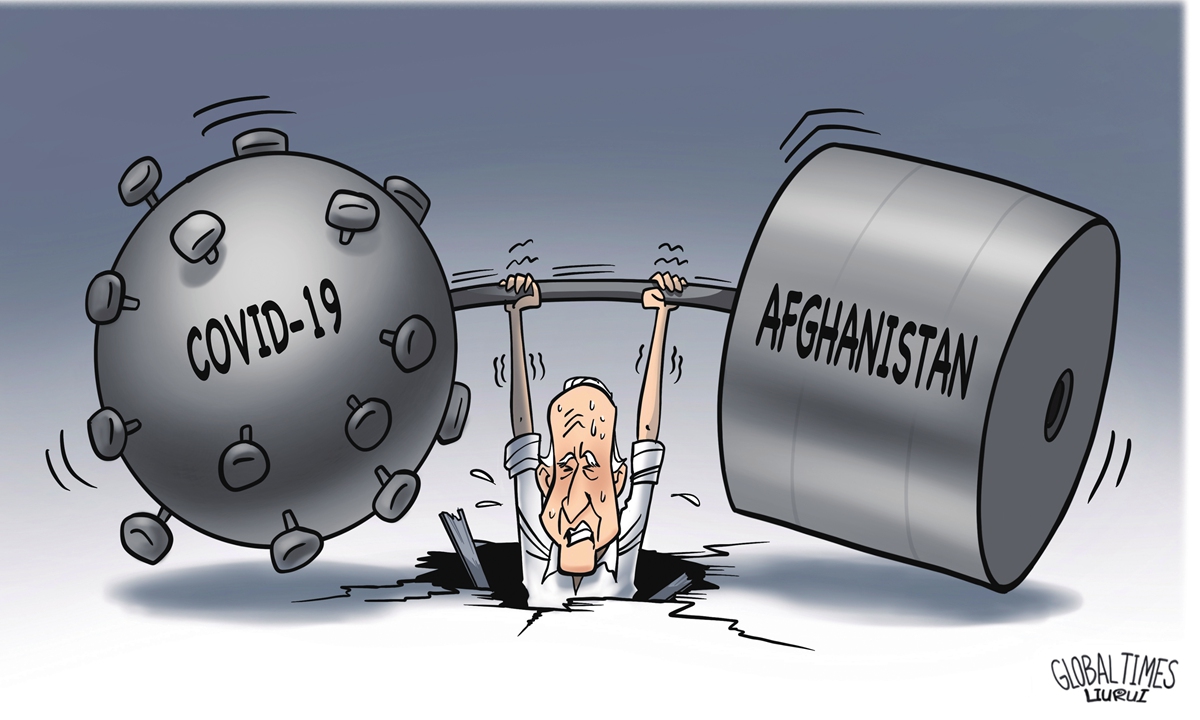How Biden Has Deceived Himself by Withdrawing Troops from Afghanistan
President Joe Biden has deceived the Americans and betrayed his allies. The biggest failure of U.S. leadership lies in assessing the combat effectiveness of the reformed, NATO-standard Afghan army.
Responding to a reporter’s question about whether or not "a Taliban takeover of Afghanistan is now inevitable," Biden had replied, "No, it is not." When asked why not, the president answered, "Because you — the Afghan troops have 300,000 well-equipped — as well-equipped as any army in the world — and an air force against something like 75,000 Taliban. It is not inevitable." When the reporter asked him, "Do you see any parallels between this withdrawal and what happened in Vietnam?" Biden replied: "None whatsoever. Zero. What you had is — you had entire brigades breaking through the gates of our embassy — six, if I’m not mistaken. The Taliban is not the South — the North Vietnamese army. They’re not — they’re not remotely comparable in terms of capability. There’s going to be no circumstance where you see people being lifted off the roof of an embassy in the — of the United States from Afghanistan. It is not at all comparable."
This question-and-answer exchange took place during a press conference at the White House on July 8, 2021. Five weeks later, the Taliban captured the Afghan capital, Kabul, and American helicopters evacuated the U.S. Embassy.
Forty-eight years ago, following the Paris Peace Accords of 1973, the United States withdrew its troops from South Vietnam, sharply reducing its military aid and ceasing to provide air support. As a result, in 1975, the North Vietnamese Army, well supplied by the Soviet and Chinese governments, conquered all of South Vietnam in two months; American helicopters evacuated personnel from the roof of the U.S. Embassy in Saigon.
Biden was obsessed with the idea of withdrawing troops from Afghanistan, and the U.S. leadership did not calculate the catastrophic consequences of this action. However, as vice president under Barack Obama, Biden engaged in numerous conflicts with the U.S. military and Secretary of Defense Robert M. Gates on the issue of complete withdrawal of U.S. forces from Afghanistan.
In 2014, Gates insisted on maintaining a minimum American presence in Afghanistan: "Since 2014, our chances at success depend on a humble yet constant NATO presence in Afghanistan, our help with training of army and police personnel, logistics, intelligence, air support and counterterrorism operations, as well as financial support for Afghan security forces. If we announce in advance about our new role to friends, enemies and bystanders, then everyone will understand that we do not intend to repeat our strategic mistake of the early 1990s and throw Afghanistan to the mercy of fate."*
But for the sake of a complete withdrawal of U.S. troops, Biden decided not to listen to the advice of the military commanders.
With no aircraft, electronic reconnaissance, drones, precision-guided bombs and missiles, sufficient artillery or ammunition, the small but well motivated Taliban army completely defeated the Afghan National Army and police, which, having been funded by the United States and NATO countries for 20 years, were superior in strength and armament. And that was literally achieved by a force of one infantry division in three months.
And now, all the effort that the United States made to build the government in Afghanistan and all the sacrifices that U.S. troops made during the liberation of Afghanistan from the Taliban have proved futile.
Presidents very often can’t resist the power of their own illusions and have no idea what modern war is like, what factors affect the real military’s combat effectiveness and the strength of society's resistance. In our time, presidents become victims to their own illusions by misjudging an army's combat capability, thinking of themselves as powerful and strong, which, in fact, is not true.
*Editor's Note: This quotation, accurately translated, could not be verified.

